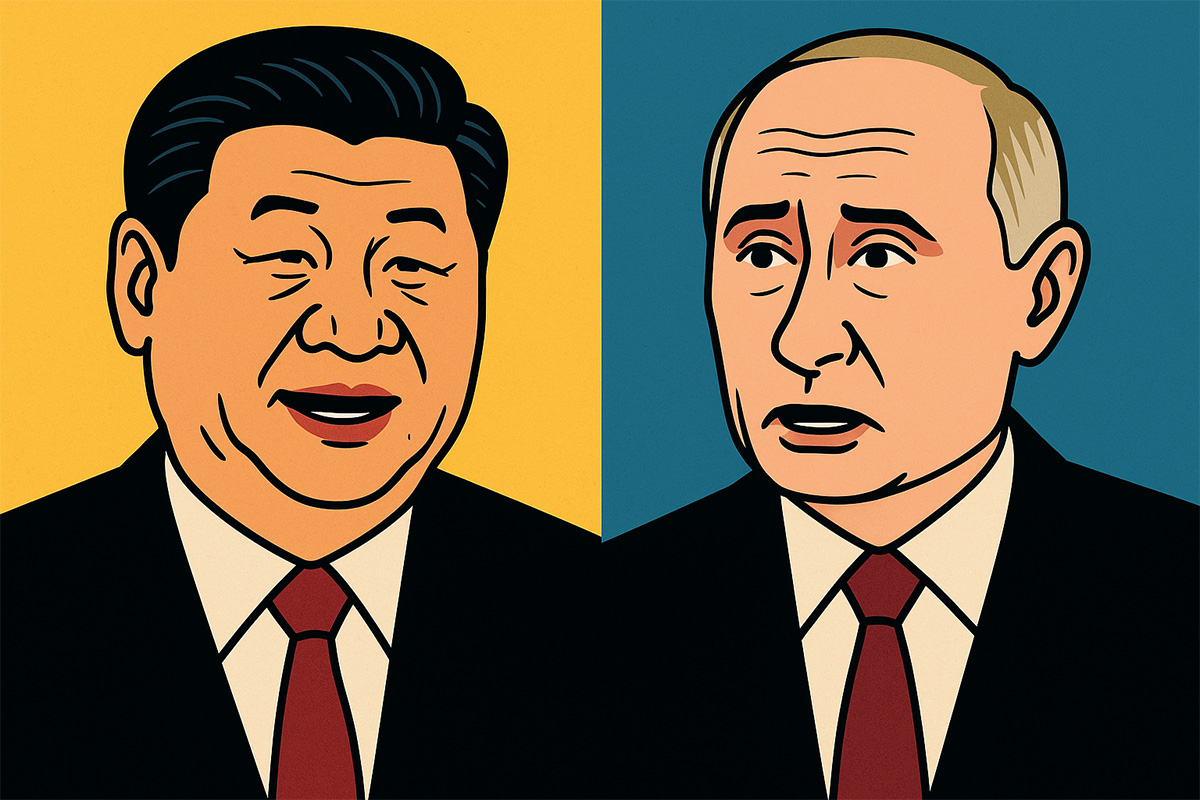
Beijing parade produces unexpected aside as Chinese and Russian leaders overheard discussing biotech, organ transplants and extended lifespan.
On the 80th anniversary of the end of the Second World War, Beijing’s Tiananmen Square became a showcase of military hardware, complete with missiles and marching troops. Yet while the spectacle intended to demonstrate strength and discipline, a different focus emerged away from the parade ground; an unguarded conversation between President Xi Jinping and Vladimir Putin drifted not to strategy or armaments, but to the possibilities of organ transplants, biotechnology and even immortality.
The exchange may have been brief, but it offered a revealing glimpse of how two long-serving leaders think about age and its limits.
Longevity.Technology: When three leaders who have consolidated power for decades and show little inclination to groom successors start musing about immortality, the subtext is hard to ignore. The absence of succession planning tends to concentrate the mind on longevity – not just for the people, but for the person; if you intend to hold on to power indefinitely, then indefinite life becomes not just a curiosity but a political necessity. In that sense, the hot-mic exchange reads as both comic and chilling – the stuff of speculative fiction, but unfolding on Tiananmen Square with nuclear missiles as backdrop.
And is such chatter good for the field? Attention, certainly – nothing brings longevity science into the mainstream conversation faster than the prospect of world leaders plotting their way to 150. But association with autocrats risks framing longevity as a vanity project for the power-hungry rather than a universal endeavor to extend healthspan. The field thrives when it is seen as democratic, evidence-based and inclusive; it stumbles when reduced to cocktail-hour banter about organ swaps and immortality. This episode may spur discussion – but it also underlines why the longevity community must be careful who appears to own the narrative.
As Xi and Putin walked shoulder to shoulder with Kim Jong Un, their translators relayed musings on longevity science captured by a stray microphone. “In the past, it used to be rare for someone to be older than 70 and these days they say that at 70 one’s still a child,” Xi’s translator could be heard saying in Russian.
Putin’s reply was partly inaudible, before his Mandarin translator added: “With the development of biotechnology, human organs can be repeatedly transplanted, and people can get younger and younger, and might even be able to stave off old age indefinitely.”
Xi’s translator then said: “Predictions are, that this century, it might become possible to live to be 150 years old.”
The promise of transplants
Organ transplantation has saved countless lives since the first successful kidney transplant in the 1950s, yet it remains an imperfect and resource-limited intervention. Donor shortages persist, rejection is common, and long-term outcomes are uneven. The suggestion that continuous transplantation might deliver rejuvenation – let alone immortality – glosses over the biological, logistical and ethical complexities. Progress in organ biomanufacturing, stem-cell derived tissue and xenotransplantation is real, but far from delivering seamless cycles of replacement parts.
Putin later repeated the sentiment to Russian media, reportedly telling the TASS news agency that modern medical and surgical approaches – including organ replacement – give humanity reason to hope that active life can be extended beyond present limits.
Political longevity and biological ambition
Both Xi and Putin have ruled for over a decade, neither signalling an intention to step aside. Kim Jong Un, younger but equally entrenched, stood alongside them as Xi declared the world faced a choice between peace and war. Against this backdrop, their private dialogue takes on an additional layer: personal political permanence linked to dreams of biological extension. In practice, the discussion reflects both a fascination with longevity science and a projection of political power – control not only over the state but over time itself.
Science, spectacle and serious debate
For those working at the coalface of geroscience, the hot-mic remarks will be met with a mixture of bemusement and frustration. On the one hand, it is striking that global leaders are discussing biotechnology and lifespan in the same breath as tanks and missiles; on the other, it risks trivialising serious science into soundbites. Organ transplantation is but one piece of a far wider landscape – encompassing cellular reprogramming, senolytics, biomarker development and preventive strategies that aim not for immortality, but for longer, healthier years of life.
A broader horizon
Immortality may be the stuff of political asides and speculative fiction, but the longevity field is rooted in careful experimentation, validation and incremental progress. When world leaders flirt with fantastical claims, the onus is on researchers, clinicians and communicators to steer the conversation back to where it belongs – the collective project of adding health to years, not merely years to power.
#Putin #caught #hot #mic #musing #longevity
